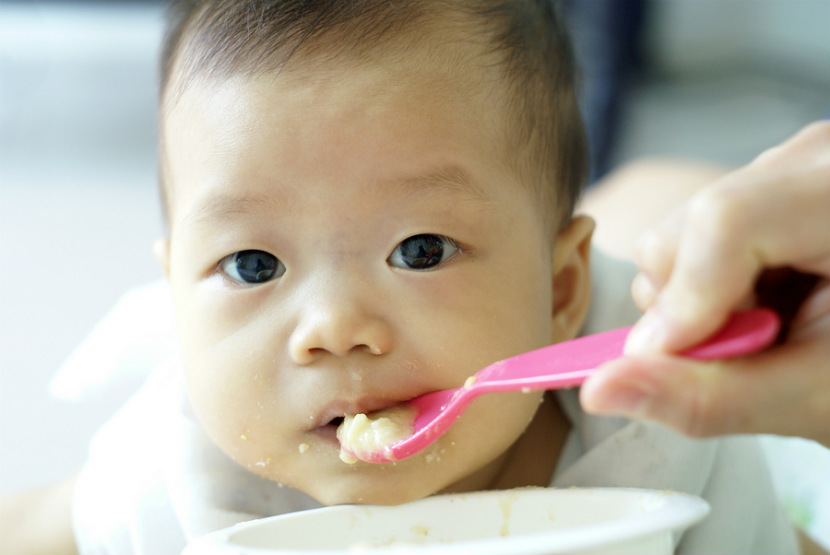
With so much talk about food allergies, it’s natural to be concerned about what to feed your baby. This article will help you understand what a food allergy is, when to introduce foods that most often cause food allergies, and when you should get more help if you think your baby has a food allergy.
What is a food allergy?
A food allergy is when the body’s immune system mistakes a food as harmful and this causes a reaction. Allergic reactions can be mild to severe.
Which foods are most likely to cause an allergic reaction?
Foods that are most likely to cause an allergic reaction include:
-
Eggs
-
Fish
-
Milk
-
Nuts
-
Peanuts
-
Sesame
-
Shellfish
-
Soy
-
Wheat
These foods are called “common allergen” foods.
Is my baby at high or low risk for developing food allergies?
Your baby may be at high risk for developing food allergies if a parent, sister or brother has an allergic condition such as: food allergies, eczema, asthma or hay fever. Your baby is at lower risk if no parent, sister or brother has an allergic condition.
While pregnant and breastfeeding, should I avoid common allergen foods to prevent food allergies in my baby?
No. You do not need to avoid common allergen foods while pregnant or breastfeeding even if your baby may be at higher risk for food allergies. If you choose to avoid certain foods while pregnant or breastfeeding, speak with a Registered Dietitian or your health care provider to make sure you are getting all the nutrients you and your baby need.
Should I delay giving my baby common allergen foods that may cause an allergic reaction?
No. When you begin solids at around 6 months, you can give your baby foods like eggs, fish and wheat as part of their diet. Avoiding or waiting to give these foods will not prevent allergies, even in babies with a family history of food allergy. Use this sample meal plan to help you feed your baby. If you are concerned about food allergies, introduce common allergen foods one at a time, and wait two days before you offer another common allergen food. This makes it easier to tell which food is the problem if your baby has an allergic reaction. You can keep track of what your baby is eating so you can be sure of what food is causing the reaction.
How can I tell if my baby is having an allergic reaction to food?
Signs of food allergies include:
-
Flushed face
-
Hives or a rash
-
Red and itchy skin
-
Swelling of the eyes, face, lips, throat and tongue
-
Trouble breathing or swallowing
-
Fainting, paleness and weakness
-
Diarrhea, vomiting
These signs can be mild to severe. They can appear after a few minutes of giving a food and often will happen within two hours of having the food. Signs can also show up hours or days later, but this is rare.
How do I know if my baby needs medical attention?
If you are concerned that a food is causing your baby an allergic reaction, stop giving the food and talk to your baby’s doctor. Signs of severe food allergy require attention right away. Call 911 or the local emergency number immediately if you see these signs of a severe allergic reaction:
-
Swelling of your baby’s mouth, tongue and throat
-
Hives that are spreading
-
Difficulty breathing
-
Difficulty swallowing or hoarse voice
-
Pale or blue colour of your baby’s face or lips
-
Faintness, weakness or passing out
Bottom line
While you are pregnant and breastfeeding, you do not need to avoid common allergen foods even if your baby may be at higher risk for food allergies. If you choose to avoid certain foods, speak with a Registered Dietitian. When you begin solids at around 6 months, you can give your baby foods like eggs, fish or wheat. Avoiding or waiting to give these foods will not prevent food allergies. If you are concerned that a food is causing your baby an allergic reaction, stop giving the food and talk to your baby’s doctor. Signs of severe food allergy require attention right away. If you have questions about food allergies, talk with your baby’s health care provider.
You may also be interested in:
Introducing Solid Food to Your Baby
All About Homemade Baby Food
All About Store Bought Baby Food
Last Update – July 25, 2018